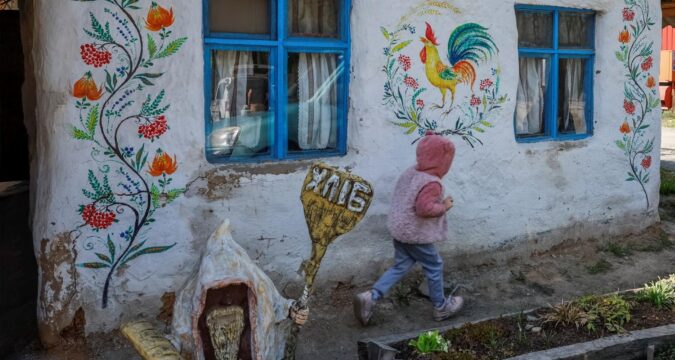
(OSV News): Ukrainian child advocate, Mykola Kuleba, pleaded for the Vatican’s assistance, after publicly highlighting what he said was one of several databases used by Russian occupation officials to market abducted Ukrainian children to Russian foster and adoption families.
Those databases—about which Yale School of Public Health researcher, Nathaniel Raymond, testified before the United Nations Security Council in December 2024—are part of a decade-long coordinated effort by Russia to remove and “renationalise” thousands of Ukrainian children, in violation of multiple international laws.
“We need a strong position from the Vatican, and pressure on Russia to give all information about Ukrainian children in occupied [Ukrainian] territories or who have been transferred to Russia—to help us identify and know their condition of health, of life, to be able to talk with these kids,” Kuleba, founder of child advocacy organisation, Save Ukraine, and Ukraine’s child ombudsman from 2014-2021, said.
“Maybe the pope will do his best to help us find more kids,” he added.
On August 7, Kuleba—who said he has so far secured the return of more than 750 forcibly transferred Ukrainian children—released several social media posts on the X, formerly known as Twitter, and Telegram platforms, showing images [with translations] attributed to a database operated by the unrecognised “Luhansk People’s Republic,” in Russian-occupied territory in Ukraine’s eastern Donbas region.
We need a strong position from the Vatican, and pressure on Russia to give all information about Ukrainian children in occupied [Ukrainian] territories or who have been transferred to Russia—to help us identify and know their condition of health, of life, to be able to talk with these kids
Mykola Kuleba
Russian authorities have heavily restricted Internet access to databases from connections outside of Russia and Russian-controlled territories, so it it difficult to verify information.
In the images posted by Kuleba, the LPR’s “Ministry of Education and Science” is seen to invite “prospective adoptive parents” to view photos of the Ukrainian children, along with their alleged first names [many changed by Russian officials, according to numerous human rights reports], ages, and a list of their traits.
A separate image provided by Kuleba displayed a search portal in which users could specify the gender, age, hair and eye colour of the children they wished to select, while indicating whether they sought an only child or one with siblings.
“It’s really horrible,” Kuleba said. “It’s like a slavery market.”
Raymond, executive director of Yale’s Humanitarian Research Lab, sad that the LPR database was known to exist since at least 2023.
He also clarified that Russian occupation officials in Luhansk mirrored other databases that “commingled” Russian and Ukrainian children, making identification of the layer difficult, until the Yale team developed the means to do so.
It’s really horrible It’s like a slavery market
Mykola Kuleba
“This LPR database has gotten a lot of attention, but it’s small in comparison to the potential amount of Ukrainian kids hidden within the three interconnected Russian online platforms,” Raymond said. “And those three platforms are Change One Life, the Ministry of Education of the Russian Federation, and ANO TsRSP [the Russian acronym for the Center for Development of Social Projects], which is a quasi-governmental agency that assists in adoption data management.”
Throughout the 11 years of its war on Ukraine—launched in 2014 with the seizure of Crimea and military backing of separatists in Donbas, and accelerated in 2022 with the full-scale invasion of Ukraine—Russia has systematically deported at least 19,546 Ukrainian children, subjecting them to “patriotic re-education” designed to erase their Ukrainian identity, as well as abuse and forced adoption by Russian families.
The actual number feared to be far higher, with Russian child commissioner, Maria Lvova-Belova—who, along with Russian president, Vladimir Putin, is the subject of an International Criminal Court arrest warrant for the forced transfers—admitting that some 700,000 Ukrainian children were in Russian custody.
Kuleba observed that, counting all Ukrainian children in Russian-occupied territories, the true number of endangered children is some 1.6 million.
“I am a Christian, and I believe that it’s against God,” Kuleba said.








